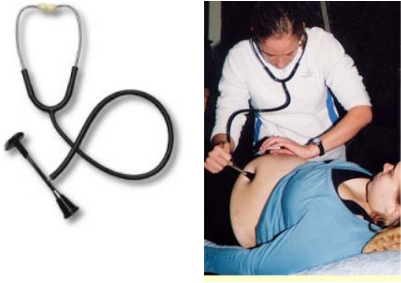
My friend Anna, who is an obstetrician, will be celebrating her 35th birthday this coming May 2. I am planning to give her something that is personalized at the same time will be very useful while she’s on duty, just like stethoscopes. I know stethoscopes are one of the medical instruments that the obstetricians will always need while examining the condition of pregnant women. And this medical instrument can be personalized too by simply asking an online shop that offers customization service to include the name of the recipient.
But because of my busy schedule here in the office, I have no more time to stroll around the medical equipment shops in our city just to find my desired birthday present for my friend. So one day, during my 15 minutes break, I decided to surf online and look for reliable providers of stethoscopes. In an instant, Google presented me a number of online sites offering durable stethoscopes, of different types.
Before I search for the said medical instrument online, I thought stethoscopes are designed for all types of doctors. But I was wrong. That was the only time I learned that obstetricians use a specific kind of stethoscope during the medical check-up of expectant mothers. And this particular medical instrument is called fetal stethoscopes or fetoscopes.
Let me share to you some of the information I have gathered about fetoscope. When it comes to function, this particular stethoscope for obstetricians is just like the other types of stethoscope used by common physicians. Obstetricians make use of fetal stethoscopes for auscultation during prenatal care appointments of their clients. If there’s one thing that would make this device different from traditional stethoscope or cardiology stethoscope, that is its design. So how does a fetoscope look like? Well, imagine a standard stethoscope with a small trumpet-shaped device provided instead of a diaphragm or bell. The small trumphet-shaped component of the fetoscope is popularly known as the Pinard horn, which enables medical specialists to listen the sounds inside the abdomen of expectant mother like the fetal heartbeat.
But because of my busy schedule here in the office, I have no more time to stroll around the medical equipment shops in our city just to find my desired birthday present for my friend. So one day, during my 15 minutes break, I decided to surf online and look for reliable providers of stethoscopes. In an instant, Google presented me a number of online sites offering durable stethoscopes, of different types.
Before I search for the said medical instrument online, I thought stethoscopes are designed for all types of doctors. But I was wrong. That was the only time I learned that obstetricians use a specific kind of stethoscope during the medical check-up of expectant mothers. And this particular medical instrument is called fetal stethoscopes or fetoscopes.
Let me share to you some of the information I have gathered about fetoscope. When it comes to function, this particular stethoscope for obstetricians is just like the other types of stethoscope used by common physicians. Obstetricians make use of fetal stethoscopes for auscultation during prenatal care appointments of their clients. If there’s one thing that would make this device different from traditional stethoscope or cardiology stethoscope, that is its design. So how does a fetoscope look like? Well, imagine a standard stethoscope with a small trumpet-shaped device provided instead of a diaphragm or bell. The small trumphet-shaped component of the fetoscope is popularly known as the Pinard horn, which enables medical specialists to listen the sounds inside the abdomen of expectant mother like the fetal heartbeat.
 RSS Feed
RSS Feed